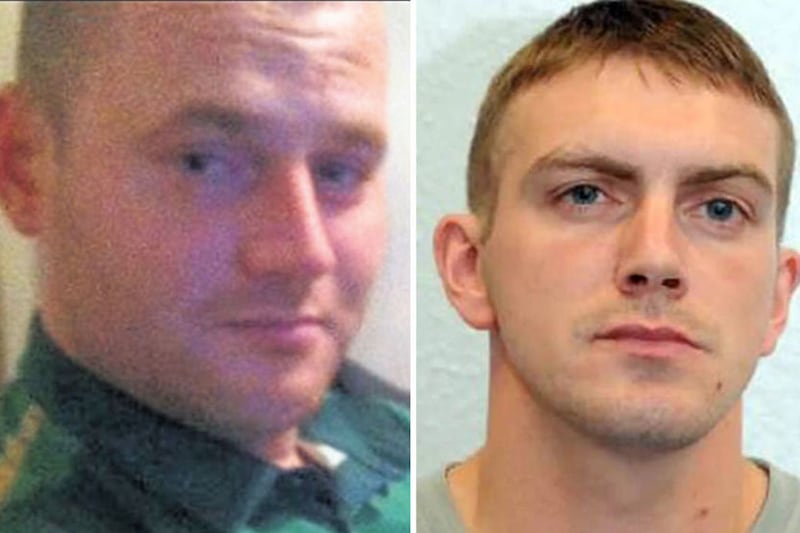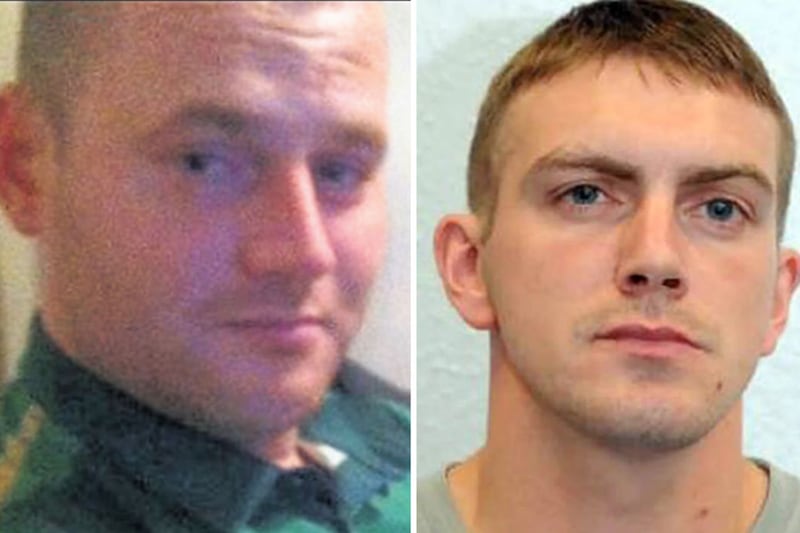The story of Larne man, turned Royal Marine, turned arms supplying dissident is bizarre, even by Northern Ireland standards.
Collusion was - as we now know - all too common during the Troubles, with police or military weapons previously used in the murders of civilians.
Routinely that collusion ran between members of the security forces and loyalist paramilitaries.
However, in Ciaran Maxwell's case not only was that collusion on a huge scale - given the sheer volume of weaponry discovered in hides in England and Northern Ireland - but his collaboration, the court was told was with dissident republicans.
Maxwell's defence team denied that he joined the Marines in order to acquire weapons for terrorism, although did acknowledge a sectarian assault he had been subjected to as a teenager had a lasting impact on his thinking.
We may never know what Maxwell's motivation was, however, this case does raise numerous questions.
Those questions are not just about how his activities went undetected for so long, but also what group the huge stockpile of munitions was intended for.
We've been told the original weapons haul was found by a member of the public who was never questioned by police nor did they make a statement. It seems more likely this find was based on information the intelligence agencies are reluctant to make public.
The weapons were found packed in blue plastic barrels.
Larne man Niall Lehd, arrested in February 2013, after a bag of high explosives was found in the town, told police he had found the material stashed in a blue barrel in a field near his home. It included the explosive compound DDNP, which was the first time it had been found in Northern Ireland.
The short jail term Lehd received would indicate neither police nor the court classed him as a major player.
However, during Maxwell's Old Bailey trial, Lehd was painted as the mastermind behind the illegal stockpiling and claimed to be a man with connections to dissident republicans, something that doesn't bear out in reality.
Lehd, is not a high profile dissident, nor is he known as such.
The Continuity IRA, with whom the court were told Maxwell made contact, are a spent force, existing in name only and in small numbers in Limerick and Armagh.
If Maxwell intended to supply arms to a republican group who posed a risk to national security, his reach needed to go beyond the CIRA.
What contact Maxwell had made with other groups or individuals will no doubt be of interest to police on both sides of the channel.
And dissident groupings may not be so quick to boast about acquiring military grade weapons or bomb making technology, if it's suspected that technology was being acquired through collusion with a serving member of the British army.








